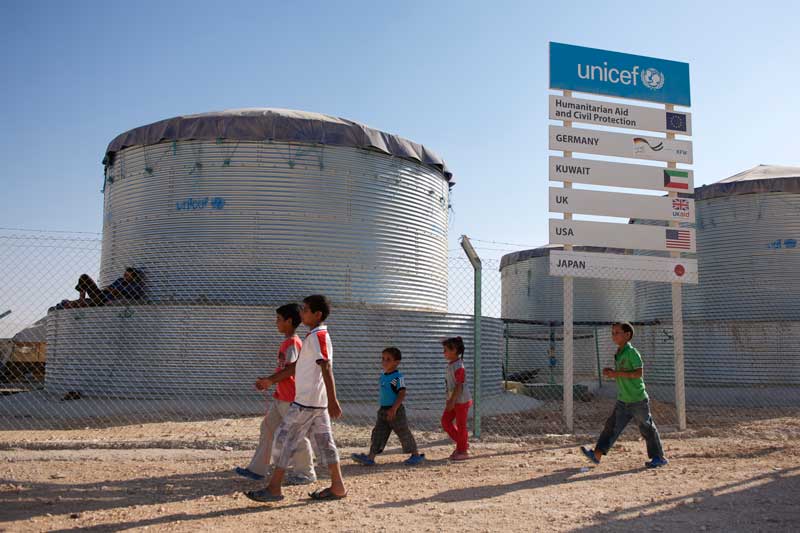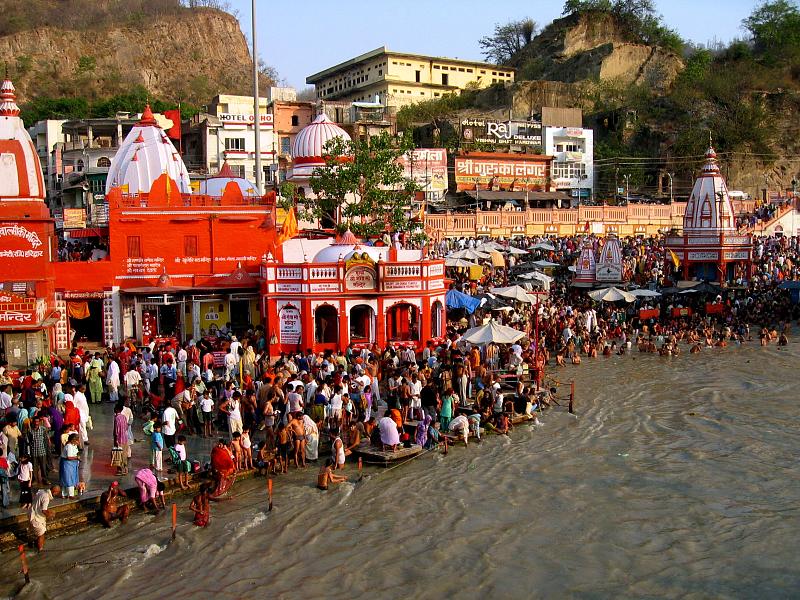In Conversation with Dr. David Lloyd Owen
Published on by Water Network Research, Official research team of The Water Network in Government
This week, the Water Network team had a talk with Dr. David Lloyd Owen . David has 25 years of experience in water & wastewater policy, company and market analysis. He is currently the Managing Director of Ensaviger and posses global understanding of water & sanitation technology and private sector approaches and their applicability in various social and political contexts, including economic analysis of water and wastewater cost drivers for Government, multilateral, corporate and financial sector clients. He also gave an amazing TEDTalk on the subject: Need for innovation to get us out of our watery mess . Thank you, David, for this amazing conversation.
Q1. The trend of urbanisation represents important challenges in terms of water supply and sanitation management in developed as well as in developing countries. How best we can meet the Challenge of Water Supply and Sanitation in the Context of Urbanisation?
Look for opportunities. For example, by building water reuse and nutrient and energy recovery into the wastewater treatment process from the start, the cost of wastewater treatment can be decreased, while new urban water supplies can be mobilised.
 Every urban centre has its own characteristics and one model does not fit all. So, decide where a centralised (large WWTW fed by extensive sewerage systems) system works best or where decentralised treatment would be better. Likewise, there are areas where
Every urban centre has its own characteristics and one model does not fit all. So, decide where a centralised (large WWTW fed by extensive sewerage systems) system works best or where decentralised treatment would be better. Likewise, there are areas where
Redefine ‘slums’. The UN has used the lack of household access to water and / or sanitation as part of its traditional definitions of a slum area. This in effect demotivates efforts to connect informal settlements. The people who live there are most certainly willing to pay for reliable and safe services rather than depending on vendors.
Planning ahead always helps. It is far cheaper to build the basic infrastructure [water and sewer mains for example] before a site is developed rather than afterwards.
Focus ODA aid to where it matters. Water infrastructure is relatively cheap and easy to finance, sewerage is not. Use aid related funding to make sewerage infrastructure projects financially feasible.
Q2. According to you which country is managing their water resources and wastewater system the best these days? And what impress you about their strategy?
Singapore made water management a part of its development strategy some decades ago and has implemented it in a consistent and coherent manner ever since. It has combined this with public education and encouraging innovation both in technology and its application. One of the reasons it is a fully developed economy is that it has one of the most advanced water and wastewater infrastructures in the world. In particular, I appreciate their long term product development work for improving the efficiency of various processes and their continued emphasis on long-term planning, based on a coherent and achievable outcome.
Q3. We have heard you saying “Sewage is a not waste, it is a fantastic resource of embedded energy, of nutrients, or water”. How would you explain this? We would love to know some case study on these lines.
Sewage contains nutrients, energy and water. The nutrients may play an appreciable role in replacing fertilisers where they are scarce, as well as reducing the nutrient load into receiving waters. Energy recovery is crucial in making the sector carbon neutral. Water reuse is a key element in sustaining the integrity of the water cycle in water scarce areas as well as the augmenting security of water supplies.
Northumbrian Water actually generates revenues in its sludge handling activities due to the value it obtains from treating sewage as a resource, not a waste.
Q4. As we know failing water infrastructure poses an existential threat to the country . Which country you think is facing this problem the most? And how will their economy get affected by failing infrastructure?
 Amongst the major countries, India arguably faces the greatest challenges. Delays in implementing projects, political interference especially over tariffs and corruption are all problems and this can be seen in the poor progress made in cleaning up the Ganga / Ganges.
Amongst the major countries, India arguably faces the greatest challenges. Delays in implementing projects, political interference especially over tariffs and corruption are all problems and this can be seen in the poor progress made in cleaning up the Ganga / Ganges.
In the long run, it will inhibit economic growth as industrial customers have problems accessing reliable supplies of water both in terms of quality and quantity. The cost in public health terms is also an increasingly important issue.
Water scarcity and the degradation of inland water resources will lead to conflicts between agricultural, industrial and domestic customers.
In particular, sewage treatment and sewerage are falling behind urbanisation and have made a negative impact on inland water quality.
Also, the assumption that customers are content with 2-6 hours of water a week and that home treatment will do the rest of the job is no longer acceptable.
The fact that more people in India have access to a mobile ‘phone than to a lavatory does not help in projecting a positive image of the country.
Q5. How can Govt address their Water Infrastructure Investment Challenges?
Until Governments take water seriously and politicians appreciate that tariffs based on full / sustainable cost recovery is essential for affordable and sustainable access to water and sanitation, we are stuck in a waiting game.
Q6. Govt policies pay a major role in water management, which developing country you think trying to build good water policies to meet SDG goals? And what could be a measure to see the result of those policies implemented?
Due to the difference between what access to ‘improved’ and ‘safe’ water and sanitation, in fact, means, I feel we are not at a point where we can consider progress until reliable ‘safer’ access data becomes available.
We need real data, rather than that which comes from occasional ‘imperial visitations’ by Government inspectors. I do wonder if there are cases where data is distorted by policy agendas.
So, a fundamental switch to ‘bottom up’ data (sorry about the pun) gathering at the street / village / community level to get the data regularly communicated, cross-checked and verified. So, look at the use of smart / mobile ‘phone apps (the World Bank ‘hackathons’ are a useful case in point) for allowing people to get this information to where it is needed.
Q7. What should be the Next-generation water policy for businesses and government?
Close the loop and treat waste as a resource. Look at water reuse and nutrient and energy recovery as an integral part of the water cycle and its management. This applies equally to municipal and industrial water users.
 Q8. Water and water recycling is a booming industry sector. How do you believe the market will develop over the next decade?
Q8. Water and water recycling is a booming industry sector. How do you believe the market will develop over the next decade?
I am cautious about expecting a boom on water spending. In 27 years of following the sector, the constant refrain has been that the boom is on its way. As mentioned in [5] until Governments take water seriously and politicians appreciate that tariffs based on full / sustainable cost recovery is essential for affordable and sustainable access to water and sanitation, we are stuck in a waiting game.
However, I do wee a lot more activity in water reuse. Also smart water will move from an interesting idea into an increasingly important reality.
Q9. We loved your book – “The Sound of Thirst: why urban water for all is essential, affordable and achievable” are you working on any other book these days?
My next book is ‘Smart water: Data capture and analysis for sustainable water management’ It is currently being written and will be published by Wiley by the end of 2016.
Q10. What would be your Key Note Address to our young Water Network members from all over the world?
Smart Water - Smart thinking to meet the challenges of the twenty-first century.
David Lloyd Owen
Read More Interviews from the 'In Conversation With' Series
by The Water Network
Media
Taxonomy
- Industrial Wastewater Treatment
- Wastewater Treatment
- Sustainable Water Resource Management
- Integrated Infrastructure
- Urban Water Infrastructure
- Infrastructure Management
- Advanced Metering Infrastructure
- Institutional Development & Water Governance
- Smart Infrastructure Development
3 Comments
-
Can you partner with us in Africa? Please see www.interwaste-ea.co.ke Rgds John Gakunga
-
I like this. There is a lot of knowledge shared here. Rgds John
-
Well crafted and informative.